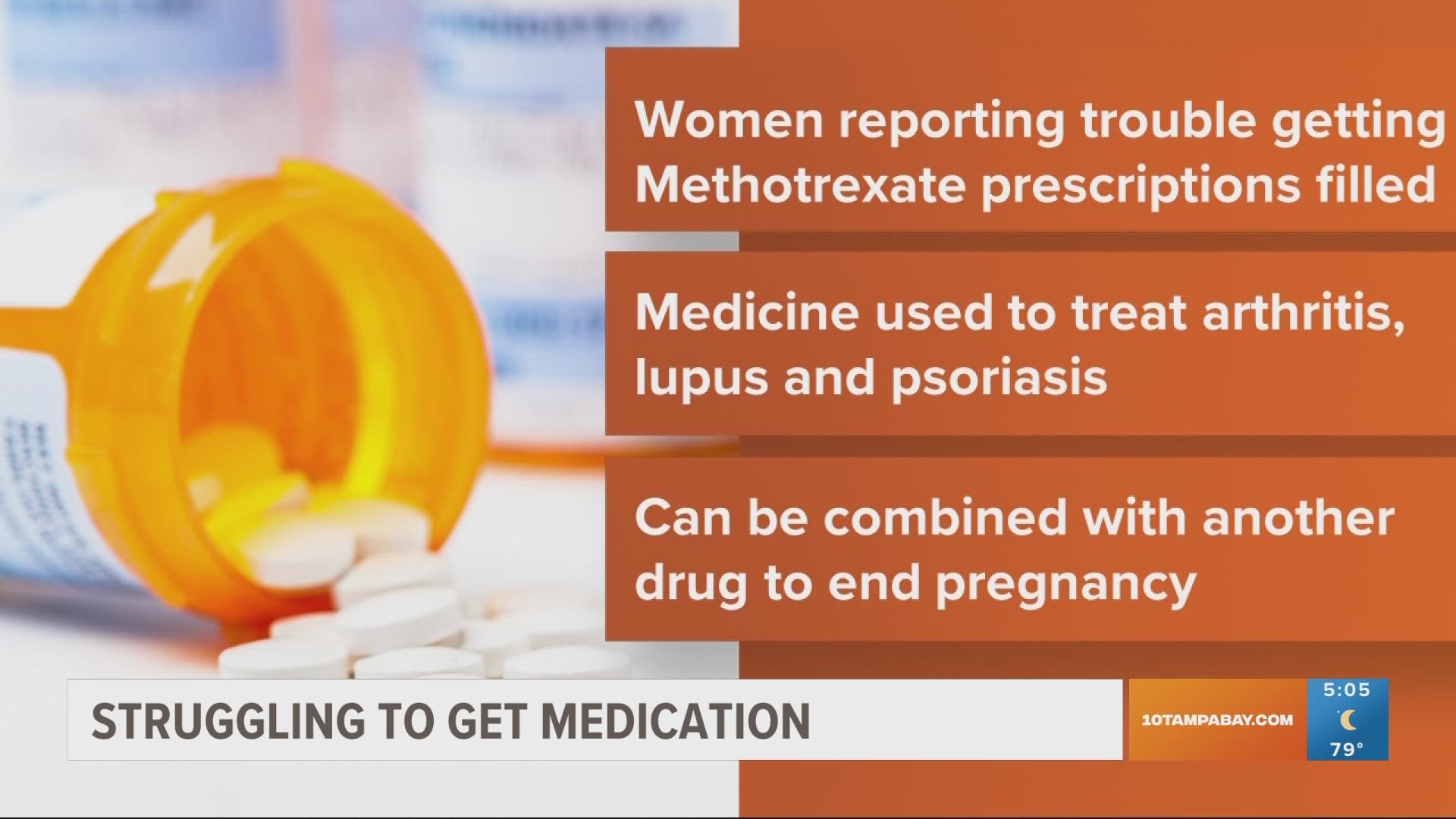ST. PETERSBURG, Fla. — Methotrexate, a drug used to treat arthritis, lupus, other rheumatic diseases and, in higher doses, certain cancers has become difficult for some patients to access following the overturning of Roe v. Wade, according to health experts.
Why? It's because the drug, when taken in much higher doses, can also be used after a miscarriage or to end an ectopic pregnancy — "a nonviable, sometimes life-threatening pregnancy that occurs when a fertilized egg implants outside the uterus," the Arthritis Foundation explains. And, paired with another drug, misoprostol, it can be used for a medical abortion.
Methotrexate itself is not pregnancy safe and could cause severe birth defects, the foundation said. And, should patients become pregnant while using the drug, their options could be severely restricted if they wish to choose to terminate the pregnancy, the Arthritis Foundation said.
Methotrexate is primarily used to treat inflammatory forms of arthritis, such as rheumatoid arthritis (RA), psoriatic arthritis (PsA) and juvenile idiopathic arthritis (JIA), according to the Arthritis Foundation.
Because the drug could be used for abortion, the Arthritis Foundation says it's become difficult for patients in some states to access their prescriptions. This is happening in states where abortion has been severely limited or outright banned due to the recent overturning of Roe v. Wade, the foundation explained.
The American College of Rheumatology said it is monitoring such reports and working to determine if it's a "widespread difficulty" for both patients and prescribers.
The ACR also provided the following statement on the overturning of Roe v. Wade.
"The ACR opposes any action which interferes with the practice of evidence-based medicine or intrudes upon the doctor-patient relationship. Pregnancy often complicates the management of women with rheumatic diseases and may threaten the life of the mother. Rheumatologists and other rheumatology professionals must be able to provide the best evidence-based care and guidance for all of their patients."
Anyone experiencing difficulty getting their methotrexate prescriptions filled has multiple ways to report it: people can email advocacy@rheumatology.org and access@lupus.org to provide details of their experience.
The Arthritis Foundation says it has a helpline and people can call 1-800-283-7800.

